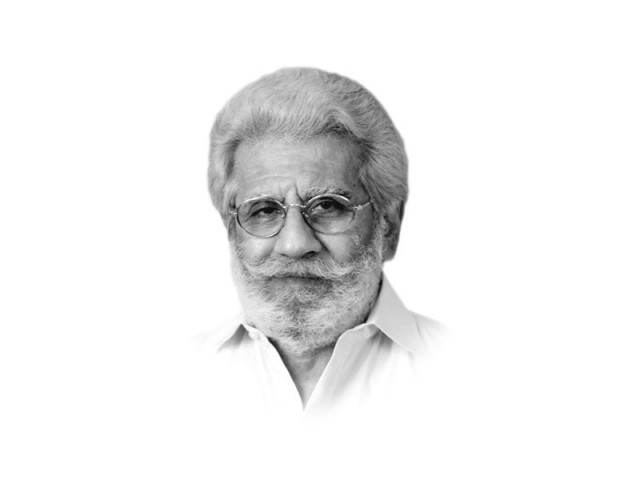Ambiguities of the 18th amendment
Enhancement by the 18th Amendment is limiting the provinces’ jurisdiction to legislate and power to execute...

The writer is a former project director and deputy managing director of Saindak Copper Gold Project
The 18th Amendment is a relocation of subjects and cannot be considered a practice in devolution; the eventual power centre rests with the federal government. The concurrent list has not been abolished fully as only certain conditions pertaining to this list have been changed. The same ministries at the federal level also exist in the provinces. The role and presence of the federal government in Balochistan is a dominating one, especially with reference to law enforcement, control over natural resources and deciding political and security issues. The provinces of Balochistan and Khyber-Pakhtunkhwa conditionally endorsed the 1973 Constitution with a promise that the concurrent list will be completely abolished within a period of 10 years, but that has never happened.
Article 158 of the Constitution says that the province has the first right to consume and meet its requirements of oil and gas before it is transmitted to the other provinces, whereas according to Article 172-3, the share of the province and the federal government is 50:50 for mineral oil and natural gas.
Despite the passing of the 18th Amendment, all revenue-generating ministries are still kept with the federal government and the rest are relocated to the provinces. One example is that of the ministry of power. The provinces are free to have their own power generation but the key factor relating to the decision for tariff and revenue collection still rests with the federal government. The mining sector should have devolved to the provinces too, but that is not the case. The labour ministry was relocated to the provinces whereas the revenue-generating EOBI still rests with the federal government. There are many other such examples. For the oil and gas sector, as per the 18thAmendment, the province has to be consulted before the federal government takes any decision, but this is not happening.
Although the 18th Amendment ensures fundamental rights, cohesive institutions are no more under the control of the Balochistan government, rendering it ineffective. Unfortunately, the situation in the country today fits the description of the state as described by Robert Jackson, former United States solicitor general: “A dysfunctional state is characterised by the growing ineffectiveness or paralysis of the administrative, legal, extractive and coercive institutions that form its essence. Some important features or syndromes … include: widespread corruption; the collapse of regular channels of communication and interaction between government and state officials, between state officials and society, and among state officials themselves; the fragmentation of society; and the loss of government control over the coercive institutions of the state.” Jackson further says that a state lacking “the characteristics of a common public realm: state offices possess uncertain authority, government organisations are ineffective and plagued by corruption, and the political community is highly segmented ethnically into several ‘publics’ rather than one” can become dysfunctional. He adds, “Corruption and incompetence infiltrate virtually every agency of government, not merely hampering but in most cases undermining state autonomy and capacity.”
The opportunity to foster balanced provincial autonomy seems to have been lost even after the passage of the 18th Amendment. Enhancement by the 18th Amendment is limiting the provinces’ jurisdiction to legislate and power to execute decisions. Therefore, in view of all this, it is difficult to accept that the 18th Amendment has provided provincial autonomy to the provinces in the real sense.
Published in The Express Tribune, January 13th, 2015.
Like Opinion & Editorial on Facebook, follow @ETOpEd on Twitter to receive all updates on all our daily pieces.













COMMENTS
Comments are moderated and generally will be posted if they are on-topic and not abusive.
For more information, please see our Comments FAQ